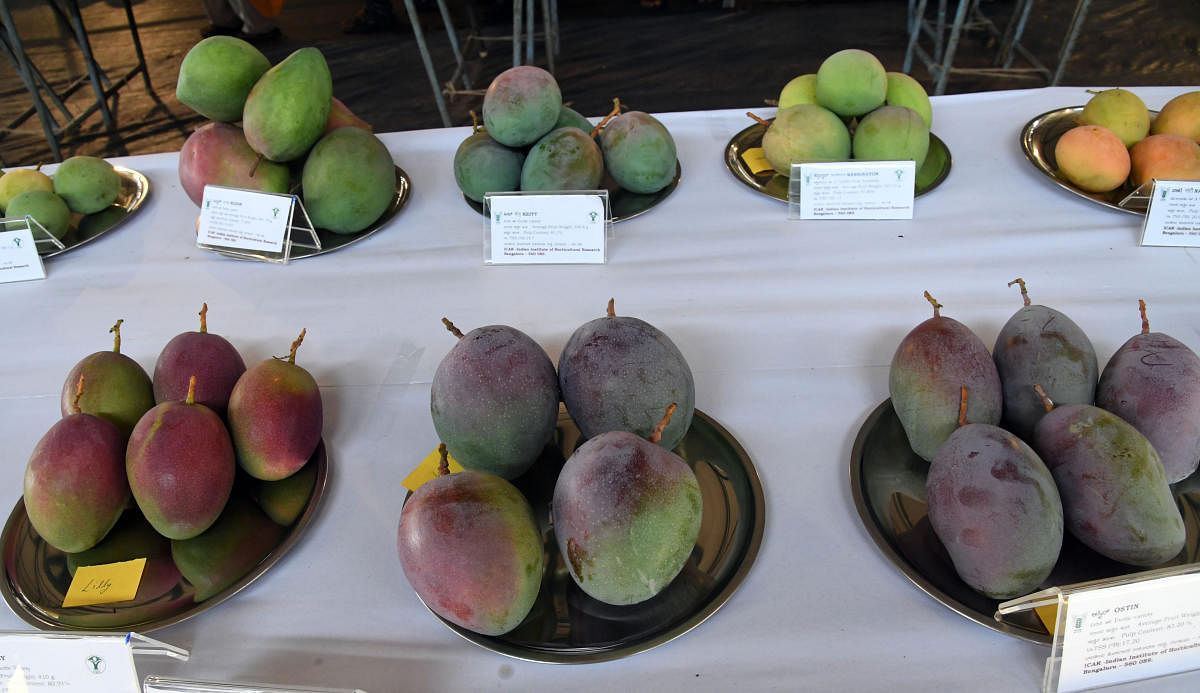
This enables growers to export mangoes on their own to supermarkets across Europe and US. As many as 20 quality clusters spanning 1,400 hectares of mango cultivation area will be created.
The clusters, certified and declared based on the distinctive varieties of mangoes and climatic conditions, can now export the mangoes to Europe, US and the Middle East. In fact, 50 GAP-certified mango cultivating farmers have displayed their produce at the ongoing Mango-Jackfruit mela at Lalbagh in the city.
According to officials of the Karnataka State Mango Development and Marketing Corporation Limited, it was the bitter experiences of our farmers at the hands of these supermarkets that led the state to help farmers get GAP certification.
“For the last two years, supermarkets from Germany and other parts of Europe have been enquiring with our farmers to buy mangoes. But they refused to buy them, citing absence of GAP certificate. We identified quality fruit orchards in different soil and climatic conditions to be declared as quality clusters,” C G Nagaraju, managing director of the Corporation, said.
Each cluster will cover about 200 acres and 50 to 100 farmers.
Packaging unit
“They can pool in money and set up a packaging unit to export the mangoes through a self-help group. Currently, farmers have tied up with agri-processing firms that take care of storage and export. Initially, we covered about 200 hectares and subsequently we have extended this to 1,200 hectares in Kolar, Chikkaballapur, Bengaluru Rural, Tumakuru and Ramanagar districts,” Nagaraju said.
Mango growers with GAP certification from Srinivaspur, Kolar, Chintamani and Dharwad export their mangoes to the US and farmers from Chikkaballapur and Ramanagar export Alphonso variety to European supermarkets.
The corporation is also facilitating the export of over 20 tonnes of mangoes every week to Holland and Singapore.